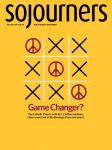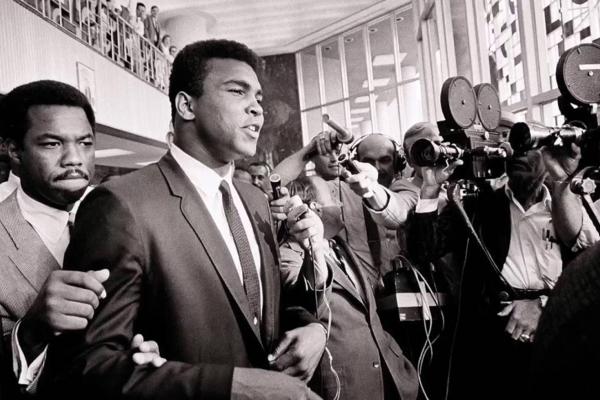THE ATTENTION generated by Captain Humayun Khan’s Iraq war activities (as related by his father, Khizr Khan, at the Democratic National Convention) is not the first time that a military story was used to try to tamp down prejudice against U.S. Muslims. In 2008, Gen. Colin Powell responded to the charges about Barack Obama being a Muslim by saying “What if he is?” Powell then cited the image of a mother hugging the gravestone of her American Muslim son at Arlington Cemetery as an illustration of Muslim contributions to the nation.
I respect Captain Khan’s military service. Yet I can’t stop thinking about an issue that his father reportedly raised with him when he was leaving for Iraq: Are you troubled at all by this war? Lots of Americans were, concerned both about the questionable evidence used to justify the war and the many lives that were sure to be destroyed during it.
As most soldiers would, Captain Khan stated that decisions about which wars to fight were above his pay grade.
But it does raise a question for those American Muslims who were disturbed enough by the contours of the Iraq war to withhold their support: Are there ways other than going to a war you don’t believe in to express your patriotism and be welcomed by your country?
I’d like to think that there are, and that American Muslims have in fact demonstrated them. Take Salman Hamdani, who was a young American Muslim emergency medical technician on his way to work on 9/11 when he saw the planes fly into the buildings. He rushed over to the site of the attacks to help whomever he could, and died in the rubble there. The police investigated him for possible ties to terrorism because of his Muslim faith and Pakistani heritage.
Shouldn’t sacrificing your life to rescue others merit the embrace of others in your country, or at least shield you from their suspicion?
Then there is the Inner-City Muslim Action Network (IMAN), a nonprofit organization on the southwest side of Chicago founded and run by Muslims, which provides a suite of social services to the local community, from prisoner re-entry programs to street festivals for kids. In August, IMAN hosted a 50th anniversary commemoration of Martin Luther King Jr’s march against housing discrimination in Chicago, which included the public unveiling of the first memorial to King in this city.
Shouldn’t building an organization that creates interfaith partnerships to serve people in need be considered deserving of the nation’s gratitude?
Finally, consider the example of Muhammad Ali, an American Muslim whose heroism stems in part from his refusal to go to the Vietnam War. It was a decision he based on his Islamic faith, and it required him to sacrifice his heavyweight title and his boxing license during the prime years of his career.
When Ali died earlier this year, the country commemorated him with something like a state funeral. At the ceremony, comedian Billy Crystal told a story about being invited to go for a run with the champ at a local country club. Crystal informed Ali that he couldn’t join him because the club didn’t allow entry to Jews. Ali was incensed by the blatant bigotry, and said he’d never run at that club again.
The conviction that people should be treated equally came from his Muslim faith as well.
It’s a reminder that sometimes refusing to go to war and choosing to fight bigotry on the home front is the most American thing of all.

Got something to say about what you're reading? We value your feedback!

